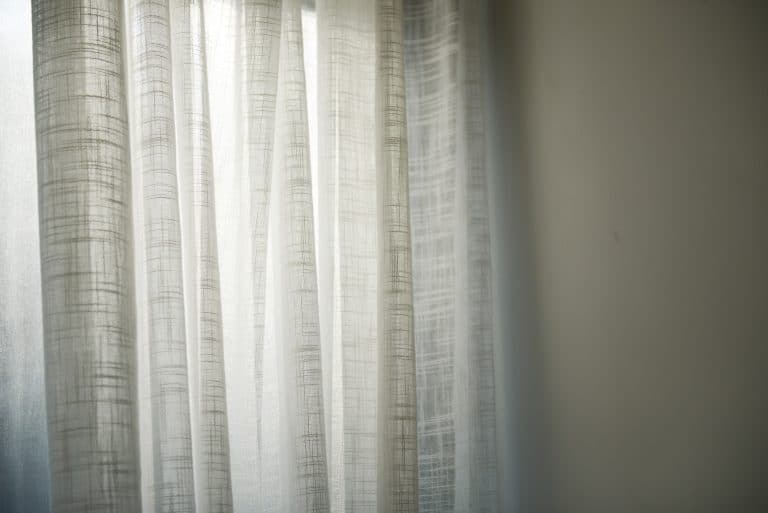
By Ziff
In the past few years, the Church’s approach to explaining its ban on women holding the priesthood has been to play up the idea that all members have equal access to blessings of the priesthood. For example, in a 2013 Conference talk, Elder Andersen said,
We sometimes overly associate the power of the priesthood with men in the Church. The priesthood is the power and authority of God given for the salvation and blessing of all—men, women, and children.
A man may open the drapes so the warm sunlight comes into the room, but the man does not own the sun or the light or the warmth it brings. The blessings of the priesthood are infinitely greater than the one who is asked to administer the gift.
What this type of rhetoric carefully ignores, of course, is that it’s only men and boys who are actually holding and exercising the priesthood, and that there are benefits to being in the group that performs the ordinances, as well as costs for those in the group that doesn’t.
I was particularly struck by this point when reading the talks given this past Conference by two teenagers from Provo, one by a girl (Laudy Ruth Kaouk) and the other by a boy (Enzo Serge Petelo). Both talks were titled “How the Priesthood Blesses Youth,” I’m sure in an effort to emphasize the parallel nature of their experiences. But the content of the talks belies this feeble attempt to make them look similar. Kaouk’s talk was about the value of receiving priesthood ordinances, while Petelo’s talk was about the value of performing priesthood ordinances. Although of course not discussed in the talks directly, it’s not news that whereas boys (and men) are able to both perform and receive priesthood ordinances, girls (and women) are able only to receive them.
In Petelo’s talk, he also tells a story that highlights how simplistic Elder Andersen’s comparison of performing priesthood ordinances to opening the drapes is. Petelo tells how his younger sister’s baptism was delayed a month so he would have time to be ordained a priest and could be the one to perform it. Elder Andersen’s analogy tells us that it doesn’t matter who opens the drapes, only that they get opened. But Petelo’s story tells otherwise. It was important enough that he be the one to do it that they delayed the ordinance.
Another issue that that opening the drapes analogy ignores is that there’s not just an ordinance performer, but also an ordinance gatekeeper who authorizes it to take place. For example, a priesthood holder performing a baptism has to get permission from the bishop (for a child of record baptism). It’s always a man who authorizes and a man or boy who performs an ordinance (other than for women’s initiatory in the temple). This is important because for women and girls, this means that having an ordinance performed means getting authorization from a man, someone who the Church does its best to make sure has a very different church experience from you.
For example, the all-male priesthood of ordinance gatekeepers and ordinance performers can limit women’s access to priesthood ordinances in the following situations:
- A young single woman who isn’t getting married or going on a mission wants to go to the temple for her endowment. She must first convince a perhaps reluctant bishop that she’s ready.
- A teen girl or adult woman wants to get her patriarchal blessing. She must get permission from her bishop.
- A woman who was sealed to her husband but is now legally divorced wants a sealing cancellation. She must convince her bishop and stake president to forward her request to the First Presidency. Many local leaders are reluctant to do so if she’s not immediately getting sealed to another man. (This is an issue of having an ordinance undone rather than done, but it’s still relevant.)
- A woman or girl wants to take the sacrament during a global pandemic, when people are leaving their houses as little as possible. If she’s in a house with a priesthood-holding man or boy, she can get it. If not, she can’t. (Note that this also highlights that the sacrament—by far our most common ordinance—is the exception to the apologetic about male-only priesthood that says that you can’t do ordinances for yourself.)
- A woman wants to serve a mission. She must convince her bishop to submit her papers. (A mission isn’t a priesthood ordinance, but the situation is similar in that women have to go through a male gatekeeper to access a valued Church experience.)
For some of these, men and boys’ experience as ordinance receivers is similar, but for others it isn’t. For example, although a sealed-but-divorced man also has to get permission to be sealed again, he’s not likely to be facing the same scrutiny because he’s not undoing a saving ordinance. A single woman who wants to go through the temple may face a bishop who has no real sense of the gender imbalance among single adults in the Church, and who may just put her off and say she can go when she’s getting married.
To fix Elder Andersen’s opening the drapes analogy, I suggest the following additions:
- A woman has to go through one man, who will authorize a second man to open the drapes. This can make the process slow and unreliable.
- Either the gatekeeper or the actual opener of the drapes might disagree with the woman that the drapes even need to be opened. “I have a lamp next to my desk,” they might say. “The glare from the sun will be too much. Why can’t you see well enough? Also, you are forbidden to buy a lamp for yourself.”
- A woman wants the drapes to be closed, but again, the gatekeeper might disagree and leave them open. The woman has no recourse.
- (Unrelated to the main topic of the post, but also, men start telling the woman that she kind of has the same power that they do because she’s able to appreciate the sun when it streams in, even though she’s still of course banned from touching the drapes.)
So to answer the question I posed in the title, of course it matters who holds the priesthood. The GAs would like us to imagine that priesthood-holding men and boys who gatekeep and perform ordinances are nothing but a conduit for God’s power to flow through, so it’s fine that women and girls are barred from it. This clearly does not align with reality, though, as priesthood-holders also have their own needs and wants, and these can easily interfere with others’ access to ordinances through them. As a result, women and girls’ access to priesthood blessings is limited not only by not being permitted to perform ordinances, but also by having to go through often unsympathetic all-male gatekeepers to receive them.
Ziff blogs regularly about Mormon topics with some of his sisters and friends at Zelophehad’s Daughters. He is also a big fan of the Exponent, and he’s happy to have the chance to guest post!




8 Responses
“unsympathetic all-male gatekeepers to receive them.” Thank you for understanding how I feel.
This is a great post. Another example is for priesthood blessings. Some things women want blessings for are very personal and generally healing blessings require two priesthood holders. Women without priesthood-holding husbands have to be uncomfortably vulnerable and share details about their lives with men who can give them blessings that they may not even know well. I had a female-specific medical condition I wanted a blessing for. Luckily my husband holds the priesthood and he just gave me a blessing, but it would have been so uncomfortable had another man been involved.
And of course, as others have mentioned elsewhere, accessing these ordinances requires worthiness interviews where women will always be confessing to men. This same medical condition mentioned above precluded me from wearing garments, so I had to discuss this with my bishop during my temple recommend interview. Thankfully my bishop was really great. But my condition wasn’t his business in the first place, and so many other women have had awful experiences in these scenarios.
everything you said, PLUS, we conflate a ton of church privileges / responsibilities / administrative power / leadership and influence with priesthood office.
i don’t know that there’s a meaningful decision in the church to be made that isn’t ultimately made by a man. no men answer or report to women. 12 yo boys have more authority and responsibility than their mothers. vast majority of GC speakers (or speakers in any meeting) are male. mission presidents as presidents and their wives as, well, wives. and, until very recently, women being required to hearken to husbands. a lot of those things don’t *need* to be linked to priesthood office, but they are anyway.
it’s beyond disingenuous for people to claim that priesthood office is irrelevant or unimportant because we all have access to priesthood power. in our church, it’s everything in terms of decisionmaking, influence, and authority. and *all* of that still leaves unanswered: why men and not women? either it’s irrelevant who is ordained, and that means we should go ahead and ordain women too. or it’s not irrelevant, and we should go ahead and ordain women so they aren’t second-class citizens.
honestly, our doctrine on the priesthood has become so convoluted in an effort to convince women we aren’t missing out on anything that it’s practically meaningless … except when it’s not (like when women can’t take the sacrament).
i’m increasingly convinced it’s just about control. and i remember the day it dawned on me, “oh, no wonder women aren’t ordained to the priesthood. men would have to be the ones to make the decision to give up their privilege!” it’s honestly such a no-brainer that i can’t believe i spent so much of my life trying to understand something that can’t be understood because it’s not from God.
So many great points. Thank you for taking the time to flesh this out.
The drapes analogy is very good. Single women having two options regarding the Sacrament during this time of Covid-19 has been on my mind, the last 24 hours. My personal situation is I am divorced and immune compromised. Taking the sacrament via drop-by means would be risking my life.
I recently read the guidelines for how a church is to operate in the first phase of the re-opening.
Hold more services with fewer people. This could have a single ward commandeering the building for an entire day. What is/are the other ward(s) supposed to do?
Encourage social distancing. Some of the classrooms, especially the classrooms for the children are simply too small to hold more than three people and maintain social distancing–if everyone stays in the same spot throughout the lesson.
The meeting house is to be thoroughly deep cleaned between blocs. It is doubtful an army of volunteer janitors are going to be able to do the necessary deep cleaning and sanitizing, let alone with children in tow.
If you aren’t feeling well, or have been in contact with someone who has tested positive for Covid-19, please stay home/quarantine yourself. Here is where it all falls apart. It wouldn’t take too many people to quarantine in order for a ward to no longer be functional.
It could be years before a sister without the priesthood in her home is able to take the sacrament, especially if she is immune compromised.
Full disclosure, I no longer have a testimony and have been inactive for more than a year and a half. My local leadership reached out and tried to reactivate me during the lockdown period. Had I merely been someone who was spiritually “struggling”, this period of truly aching to take the sacrament and not being able to–a period that now looks like it’s going to be years–would have only added weight to my spiritual shelf.
I sent this to family members. This essay is a great way to discuss the inconsistencies of this analogy in a thoughtful way.
As an additional example of priesthood holder as gatekeeper, my husband hasn’t “felt like” blessing the sacrament for the last three weeks, and so I have been denied access to this ordinance even though I do have a priesthood holder in my home.
Thanks everyone for your comments! I’m glad that you found this useful. Thanks especially for adding to the list of ways that men’s priesthood gatekeeping gets in the way of women fully experiencing church or God in the way they would like. I was thinking when writing the post that I was only getting the tip of the iceberg when it comes to this type of thing, so thanks for filling the picture out more fully!